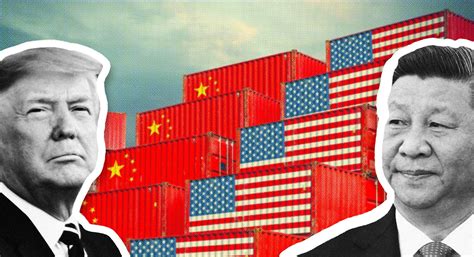—
In the bustling world of global economics, where countries jostle for dominance and prosperity, the United States has long been perched at the pinnacle. For over eight decades, it has wielded power and influence through a delicate dance of trade agreements and financial diplomacy. But now, that cherished position seems imperiled by the tumultuous waves of change initiated by none other than President Trump.
End of an Era
The economic system carefully crafted by the U.S., anchored on principles of cooperation and consensus rather than coercion, is facing its most severe test yet. This system not only solidified America’s status as the wealthiest nation but also crowned it as the undisputed financial giant of the world. With laws governing transactions, stability breeding trust, and the almighty dollar reigning supreme in global commerce, this economic utopia seemed unassailable—until now.
As dawn breaks on this new chapter in history, President Trump’s decisions loom large, casting shadows of uncertainty across nations accustomed to a different tune. Gone are the days of shared visions and mutual benefits; instead, a stark reality emerges where power dictates terms and might reigns supreme.
A New World Order
Greg Grandin, a keen historian from Yale University, succinctly captures this seismic shift in ideals: “This is a completely different vision—one in which nations don’t have shared interests; they have inherent conflicts of interests.” In essence, President Trump’s aggressive stance on tariffs reflects a departure from old norms—a declaration that economic warfare is not just imminent but necessary for survival in this dog-eat-dog arena.
The recent imposition of substantial tariffs marks a pivotal moment in U.S. economic policy—a move that reverberates globally as countries brace themselves for potential fallout. With a 10 percent tax looming over almost every imported good entering American shores, businesses shudder while economists speculate about what lies ahead.
Expert Insights:
I reached out to Dr. Sarah Monroe, an esteemed economist renowned for her astute predictions on market trends. According to her analysis: “President Trump’s trade war carries significant risks not just for America but for the entire global economy. The shift towards protectionism could spark retaliatory measures from trading partners leading to escalating tensions.”
Stories are rife about small-town manufacturers hit hard by rising costs due to tariffs or families struggling with price hikes at supermarkets—all casualties caught in the crossfire of political maneuvering on trade policies.
The Unraveling Tapestry
Picture bustling ports once abuzz with activity now mired in uncertainty; envision multinational corporations recalibrating strategies amidst choppy waters; see everyday consumers feeling the pinch as prices inch upwards—it’s a tapestry unraveling thread by thread under the weight of geopolitical gambits.
The implications extend beyond mere economics—they touch upon lives and livelihoods intertwined with intricate supply chains spanning continents. What happens when these chains are disrupted? Who bears the brunt when economies clash?
In conclusion:
While only time will reveal how this high-stakes saga unfolds—the one thing certain is that we stand witness to an epochal shift—one where cooperation wavers and conflict looms menacingly on the horizon.

